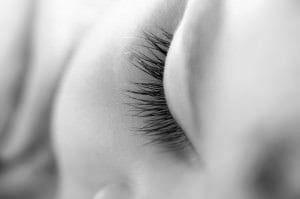

Dreams and sleep: When Dreams Occur
What an ordinary person calls sleep is a series of three stages: wakefulness, Non-REM and REM (Rapid Eye Movement). During dream and sleep, most of the body activities are usually low excepts for the brain which is highly active. In fact, the electrical activity of the brain in sleep is the same as when you are awake.
Dreams mostly occur in the REM part of sleep which is the deepest part of sleep. REM is characterized by rapid eye movement and atonia – muscle paralysis. Atonia prevents people from acting out the dream. Sleepwalking and other parasomnias occur because the body muscles are not paralyzed in REM. Dreams that occur in stages other than REM are less vivid and memorable.
Dreams and sleep occur on every night of a person’s life. As for dreams, not all of them are easy to remember but they do occur on every night of sleep. An average person sleeps for about 8 hours and dreams 3 to 5 times a night. Most dreams occur at 2 – 5 pm when it is darkest and are longer as the night progresses. An estimated 2 hours of the 8 hours of sleep are spent dreaming.
Dreams and sleep are intertwined such that dream can lead to poor or quality sleep. Good dreams have a good effect on sleep in that they bring a relaxing feeling on mind. The enhanced feeling of serenity produced by good dreams leads to deeper and more peaceful sleep. Happiness and joy after dreaming a good dream enhances mood which is good for sleep.
Dreams and Sleep: Fear and Sleeplessness
Not all dreams are good for sleep. Scary dreams can wake you up. After being woken up by a scary dream, some are afraid to fall asleep again for fear of the dream recurring. This leads to daytime sleepiness. Some children are even afraid to go to bed for fear dreaming. Most of the parasomnias –abnormal activities during sleep- are related to dream. Common parasomnias include:
- Sleep talking.
- Sleepwalking.
- Night terrors.
- Abnormal leg movement.
- Bedwetting.
- Hallucinations.
- Nightmares.
Most parasomnias are associated with poor quality sleep.
Dreams and Sleep: Meaning for Dreams
The actual reason why dreams and sleep occur is not known and is therefore left to theories. Here are to theories explaining why humans dream:
- Freud’s theory – Freud suggests that dreams are an attempt to fulfill desires that would be dangerous or impossible to fulfill during the day.
- Dreams are an extension of a person’s daytime life and thus they can show signs of a person in distress.
Tips for good Dreams and sleep
- Dreams and sleep are affected by the environment –physical and mental. Children and “bad dreamers” should not watch scary movies. The sleeping environment should be relaxing.
- Photos of parents in the children’s bedroom are helpful in reducing incidences of bad dreams.
